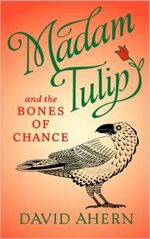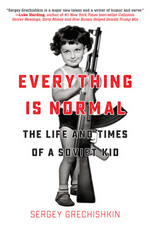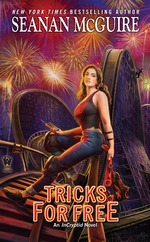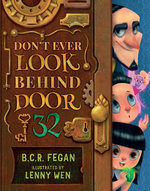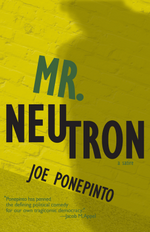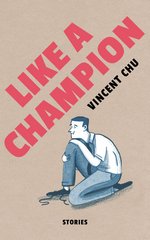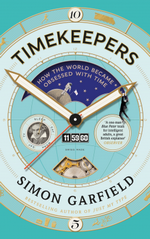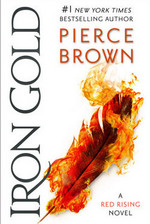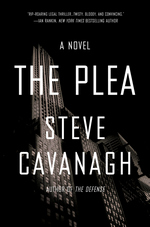 The Plea
The Plea
by Steve Cavanagh
Series: Eddie Flynn, #2Hardcover, 358 pg.
Flatiron Books, 2016 (2018 for US Edition)
Read: April 10 – 12, 2017

Lawyers don’t usually question whether or not a client is telling truth. That way lies madness. You do what you have to and trust the system. So, the guilty plead guilty. The innocent fight their case and the jury decides. If a by-product of that process is the emergence of the truth, then so be it, but the truth is not the aim of the process. The verdict is the aim. Truth has no place in the trial because no one is concerned with finding it, least of all the lawyers or the judge.
If that’s not cynical enough for you, try this:
I saw through Dell’s game. It was a familiar one. It’s a game the justice system plays every single day in America–because sometimes it simply doesn’t matter if you’re really innocent of the crime; the only smart move is to plead guilty and make a deal for a lesser sentence.
“You want me to read the new evidence and tell David that irrespective of his innocence, he will definitely be convicted and his only choice is to plead guilty and make a deal to cut his sentence.”
“Bingo,” said Dell.
Happens all the time. I’ve done it myself. Innocent people often don’t want to take the chance of losing and doing fifteen or twenty years when they could make a deal and be out in two. It’s mathematics–not justice, but that’s the reality.
Don’t worry — this book is not a diatribe about the shortcomings of the American judicial system (as appropriate as one might be), little comments like that are just a little bit of flavoring accenting the story, grounding it in the real world despite the craziness filling the book.
Eddie Flynn, for those new to the character, is a con man who went straight and then went to Law School. Following that, he made a couple big mistakes — one cost him the career he had built, the other cost him his family. He’s in the process of rebuilding both — no easy task — but you have to root for the guy trying to recover.
Eddie’s approached (okay, ambushed) by the FBI, who wants Eddie to take on a new client, David Child. Child’s a tech billionaire accused of murdering his girlfriend, and the FBI wants Eddie to convince him to plead to the charges. Then he needs to convince Eddie to help the FBI take down the law firm that currently represents him — and is laundering money on a mind-boggling scale. If Eddie refuses? The FBI has enough evidence to put Eddie’s ex away for a long time (did I mention that she works for the aforementioned firm, totally unaware that she’s incriminated in the laundering?).
So, somehow Eddie has to separate Child from his current counsel, replace them, and then persuade Child to work with the FBI — within a couple of days. No easy task. Then Eddie becomes convinced that Child is innocent. Which complicates things tremendously. So how does Eddie clear Child, keep his wife out of jail and help the FBI take down the laundering lawyers? Well, it’ll take every bit of his old tricks, and maybe a few new ones.
I’m not a huge legal thriller guy — never read a Grisham — but when you give me a compelling character (particularly a defense attorney) like Eddie Flynn, I’m in. Watching Eddie navigate through the tricky waters of the system — including jail guards, court staff, judges, prosecutors — is a blast. This was like a serious version of the Andy Carpenter books. I would like to see Eddie take on a client he because he wanted to for a change, but that’s not a complaint about this book, it’d just be nice to see.
Sure, it’s your appreciation for Eddie Flynn that’ll determine if you like this book or not, but he’s not the only character to focus on — there’s David Child himself, who is interestingly drawn — he’s a fairly typical computer-genius character, socially awkward, etc. Typical, yes, but used well. My only complaint about Child’s associate, Holly, is that we didn’t get more of her (not that Cavanagh could’ve easily fit more of her in). The villains? Nasty, vile people — believable (with one possible exception, but I liked him enough I don’t care) — all of them were well used, well drawn and just what the doctor ordered.
The Plea isn’t perfect: I figured out the whodunit almost instantly, but it took a little while to get the details of the howdunit right — and Cavanagh fooled me a little bit on that one. But that didn’t detract from the book at all — the fun is in watching Eddie and the rest scramble to survive this horrible situation and figure things out. The plot moves at a relentless pace — which is a cliché, I realize, but I challenge you to come up with another way to describe this plot. Eddie can barely get a moment to rest and think, and when you’re reading this, you feel like you can’t either.
Characters you can’t help but root for (or, in some cases, against), a fast-moving plot, with just enough twists, turns and hurdles. This one’ll grab you by the collar and drag you along as it rushes to the dramatic conclusion (not that you’ll be fighting against it, but the dragging will help you keep up). Keep yours eyes peeled for Steve Cavanagh and Eddie Flynn, they’re something to watch.
—–



